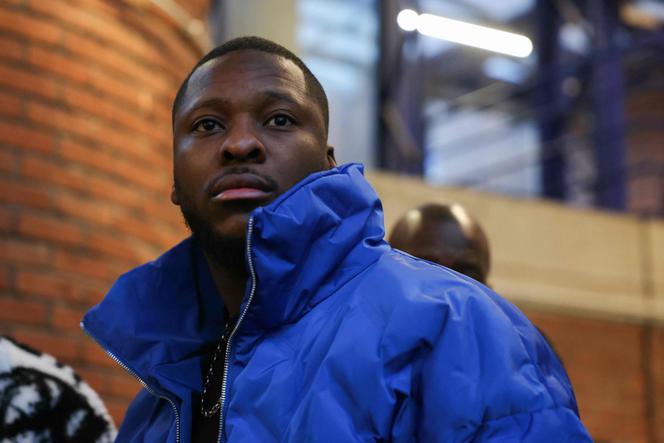


"Mr. Luhaka, come forward." At the judge's invitation, Théodore Luhaka unfolded his tall frame and slowly made his way to the stand on Monday, January 15. What looked like a briefcase in his right hand was, in fact, a rectangular cushion fitted with a handle. The bailiff brought him a chair. "I'll start standing up and sit down if I need to."
The young man placed his cushion on the lectern and, barely a meter from the three police officers who violently assaulted him seven years ago, began his three-hour deposition before the Seine-Saint-Denis criminal court, north of Paris. "Good morning, everyone. Théodore Luhaka, 29 years old. Today, I don't do much, I'm at home, and I'm disabled."
On Friday, several specialists had taken the stand to describe, in crude and scientific terms, the medical situation experienced by the young man, who is the victim of a ruptured internal sphincter and a 10-centimeter lesion of the anal canal caused by a truncheon strike during a police identity check that became violent on February 2, 2017, in Aulnay-sous-Bois, a northeastern Paris suburb.
Throughout the hearing, there was discussion of "anal stenosis" and "fecal incontinence"; of the "colostomy" Luhaka underwent – an operation in which the colon is connected to an external pouch that collects his stool, which has to be emptied regularly – then of the second operation aimed at "re-stapling the colon to the rectum"; of his "decreased sphincter muscle tone" and his "gas incontinence," which persists seven years on, summed up thus: "He can leak gas at any time during the day."
"We estimate an impairment of physical and psychological integrity of 8%: 5% for gas incontinence, 3% for the psychological impact," explained the hepato-gastro-enterologist who treated Luhaka. One doctor spoke of mere "after-effects, admittedly unpleasant"; while all his peers were more in support of the idea of "permanent infirmity" – a condition that justified this trial being held at the criminal court where more serious crimes are judged.
"When it comes to bowel movements, I've found a system: If you don't eat, you don't have stools. But for the gas, they told me: 'You'll never be able to get rid of it'," Luhaka explained to the court. After his colostomy pouch was removed, he thought he could "eat and act like a normal person. That was my mistake. Passing stools outside, far from home, in my underwear, with the unpleasant smells... That's when I realized I had a sickness."
His ambition had been to become a professional football player, and he was about to join a Belgian third-division club that had scouted him, when his life was thrown into turmoil. His life is now trapped between the four walls of his bedroom and the screen on which he spends his days watching TV series.
You have 65% of this article left to read. The rest is for subscribers only.
